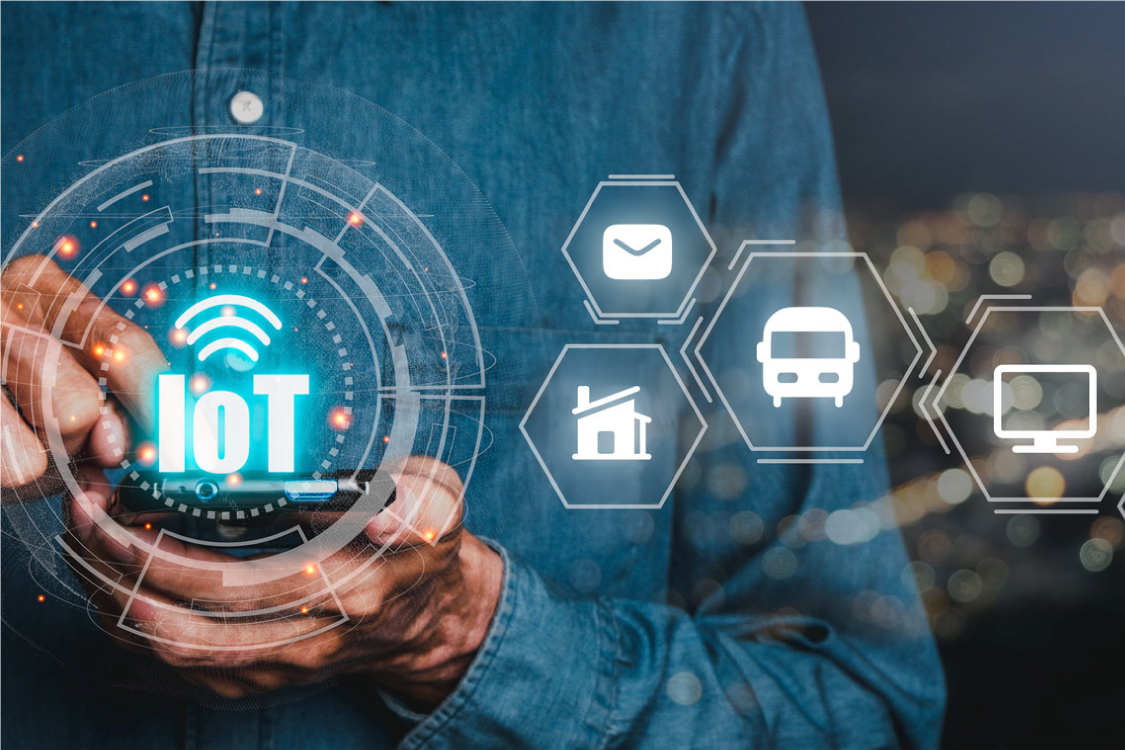In recent years, the amalgamation of GPS integration in IoT products has revolutionized the way we perceive and utilize technology. The fusion of these two innovative technologies enhances the functionality and efficiency of a wide array of products and services. This article delves deep into the world of GPS and IoT, exploring their intersection and the myriad benefits that arise from their integration.
The advent of the Internet of Things (IoT) era has paved the way for a new generation of connected devices, where GPS integration plays a pivotal role. By embedding GPS technology in IoT devices, businesses and consumers alike can experience improved location tracking, real-time data collection, and enhanced operational efficiency. This integration is particularly significant for exporters and importers, who rely heavily on precise tracking and efficient logistics management.

What is GPS Integration in IoT?
GPS integration in IoT refers to the incorporation of Global Positioning System technology within IoT devices to facilitate accurate location tracking and data exchange. This synergy enables devices to communicate with each other and provide valuable insights into their whereabouts and movements. The primary objective is to enhance the overall functionality and performance of IoT products, making them smarter and more intuitive.
The Evolution of GPS Technology
GPS technology has come a long way since its inception. Originally developed for military use, it has now become an integral part of our everyday lives. From navigation systems in cars to fitness trackers, GPS technology is omnipresent. The integration of GPS in IoT products further amplifies its potential, allowing for seamless connectivity and data sharing.
Benefits of GPS Integration in IoT Products
The benefits of embedding GPS technology in IoT devices are manifold. Here are some of the key advantages:
- Enhanced Location Tracking: GPS integration provides precise and real-time location data, which is crucial for businesses that rely on logistics and transportation.
- Improved Operational Efficiency: By monitoring the movement of goods and assets, businesses can optimize their supply chain operations and reduce costs.
- Increased Security: GPS-enabled IoT devices can help in tracking lost or stolen items, ensuring their safe recovery.
- Data-Driven Insights: The integration of GPS and IoT allows for the collection of valuable data, which can be analyzed to gain insights into consumer behavior and preferences.
Applications of GPS Integration in IoT
The potential applications of GPS integration in IoT are vast and varied. Here are some examples:
Transportation and Logistics
The transportation and logistics industry is one of the biggest beneficiaries of GPS-integrated IoT devices. These technologies enable businesses to track the movement of goods in real-time, ensuring timely deliveries and efficient route planning. For more insights on the challenges faced in IoT interoperability, explore this informative read.
Fleet Management
Fleet management systems benefit immensely from GPS and IoT integration. By monitoring vehicle locations, businesses can optimize routes, reduce fuel consumption, and improve overall fleet efficiency.
Smart Cities
Smart cities leverage GPS-integrated IoT devices to enhance urban infrastructure. From smart traffic management systems to efficient public transportation, these technologies play a crucial role in creating sustainable urban environments.
Environmental Monitoring
GPS-enabled IoT devices are instrumental in environmental monitoring, providing real-time data on air quality, water levels, and weather conditions. To understand more about how IoT devices contribute to environmental monitoring, check out this article.
Challenges in GPS Integration with IoT
Despite its numerous benefits, the integration of GPS in IoT products is not without challenges. Some of the common issues include:
- Power Consumption: GPS devices tend to consume a significant amount of power, which can be a constraint for battery-operated IoT devices.
- Data Security: The exchange of location data raises concerns about privacy and security, necessitating robust data protection measures.
- Interoperability: Ensuring seamless communication between different IoT devices and platforms requires overcoming interoperability challenges.
To delve deeper into the principles of IoT gateway design and how they can address interoperability challenges, refer to this blog.
Future Prospects of GPS and IoT Integration
The future of GPS integration in IoT products looks promising, with advancements in technology paving the way for even more innovative applications. As IoT devices become more prevalent, the demand for GPS-enabled solutions will continue to grow. The integration of artificial intelligence and machine learning with GPS and IoT is expected to further enhance their capabilities, providing more accurate and insightful data.
For a closer look at the future of IoT and the role of GPS integration, explore this external resource.
Conclusion
In conclusion, the integration of GPS technology in IoT products is a game-changer, offering numerous benefits across various industries. From improving operational efficiency to providing valuable data insights, the potential of this synergy is immense. As technology continues to evolve, the integration of GPS and IoT is poised to transform the way we interact with the world around us.

FAQs
1. What are the main benefits of GPS integration in IoT?
GPS integration in IoT offers enhanced location tracking, improved operational efficiency, increased security, and valuable data-driven insights.
2. How does GPS integration benefit the logistics industry?
GPS integration allows for real-time tracking of goods, efficient route planning, and optimized supply chain operations, benefiting the logistics industry significantly.
3. What are the challenges of integrating GPS with IoT devices?
Some challenges include power consumption, data security concerns, and interoperability issues between different IoT devices and platforms.


